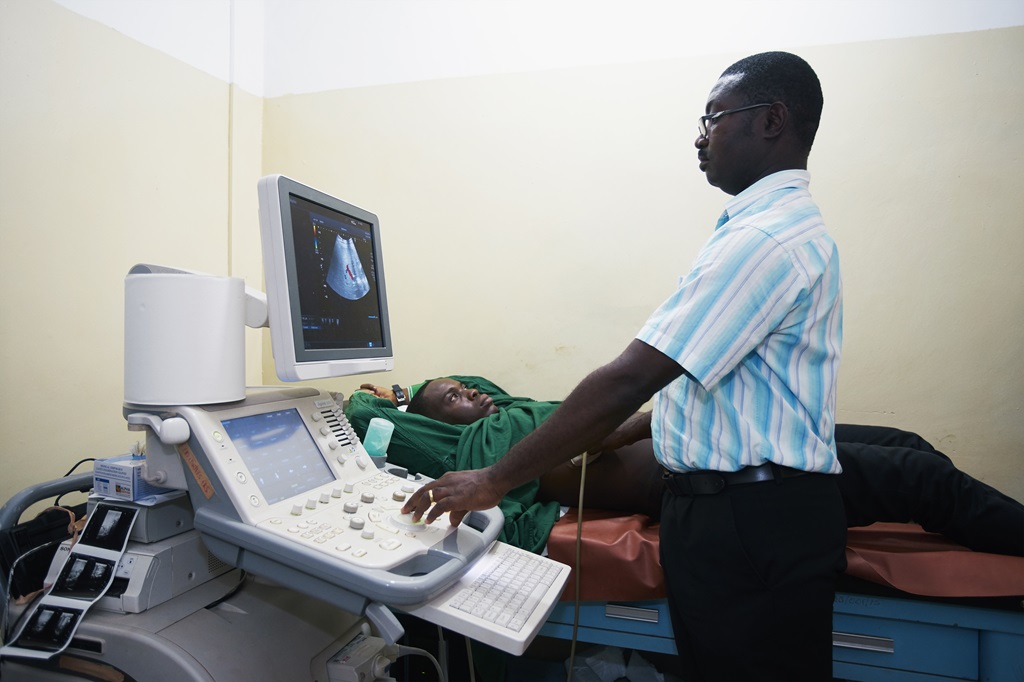
Since 2018, the city of Kumasi, Ghana, and its local healthcare facilities have been working with the City Cancer Challenge Foundation (C/Can) to address critical cancer care gaps through tailored and sustainable interventions.
A Needs Assessment with city healthcare stakeholders across the cancer continuum identified the limited access to imaging services in public hospitals as one of the most significant challenges. This gap creates a major barrier for cancer patients, whose outcomes rely heavily on timely diagnosis and follow-up care.
To address this challenge, an imaging development plan was developed for Kumasi, together with local stakeholders. Following this comprehensive plan, the Ministry of Health recommended nation-wide rollout and partnered with C/Can and the International Finance Corporation (IFC), the private sector arm of the World Bank, to conduct an assessment of the available supply and forecasted demand of imaging services. The aim was to develop an imaging services model that can address system improvements, across both cancer-specific and non-cancer settings, , and ensure equitable access across the country.
Development of evidence-based medical services eliminates errors in clinical diagnosis and ensures better treatment outcomes. Medical imaging has eliminated a lot of mysteries surrounding medical diagnosis and contributed to advancement in health care. Ghana cannot be left behind in these advancement in health care. The only option for us is to embrace it so that irrespective of where one lives in Ghana, access to improved health care is not a challenge.
said Dr Nicolas Ajabu, Ghanaian Ministry of Health.
The assessment involved a comprehensive data collection and evaluation of imaging equipment across 16 regional hospitals and 5 teaching hospitals. The six types of imaging equipment assessed were MRI scans, CT scans, ultrasounds, X-Ray scanners, mammograms and fluoroscopes. Several findings were identified:
- All hospitals surveyed were equipped with foundational diagnostic services that included X-rays and ultrasound.
- Higher concentration of functional equipment noted in Greater Accra (38), followed by Ashanti (19) and Central (19) region.
- Advanced imaging services such as MRI and CT scans are concentrated in larger, urban hospitals, with functionality status as of December 2023 as follows:
- MRI 1 functional, 5 non functional
- CT scans 15 functional, 8 non functional
- Fluoroscopy 3 functional, 3 non functional
- Mammogram 3 functional 5 non-functional
- Limited resources exist for routine maintenance of equipment, with some equipment out-of-service and requiring repair.
After establishing the existing capacity, work was conducted to estimate the current demand for imaging services across Ghana’s health system considering all health conditions, not only cancer. This was calculated using disease incidence and the projected number of patients requiring diagnostic services within a defined time-frame.
“The current assessment provides a good platform upon which Ghana can ensure increased availability of diagnostic imaging services in public hospitals. The next step is ensuring that the needed resources are mobilised to improve patient access to these services. This will improve health outcomes while also reducing expenses incurred by patients in accessing these services.”
said Michael Gone, Health Financing Manager for C/Can.
Based on the projected demand, calculations were made for the required number and type of imaging equipment that would be needed to meet it adequately. This was conducted using a hub-and-spoke model, where specialised diagnostic equipment, such as MRI scans and CT scans are centralised at larger ‘hub’ hospitals, ensuring high-demand equipment is optimised at key locations. A cost analysis was also conducted to estimate the investment needed for the acquisition, installation and maintenance of these resources, providing a clear financial roadmap for implementation.
Discussions are currently underway with the Ministry of Health to support strategies that would ensure improved availability of essential imaging services across the country, with various funding and ownership models. This comprehensive and collaborative assessment provides a foundation and opportunity for improved access to quality and timely diagnostic services in Ghana, where they are needed most.





